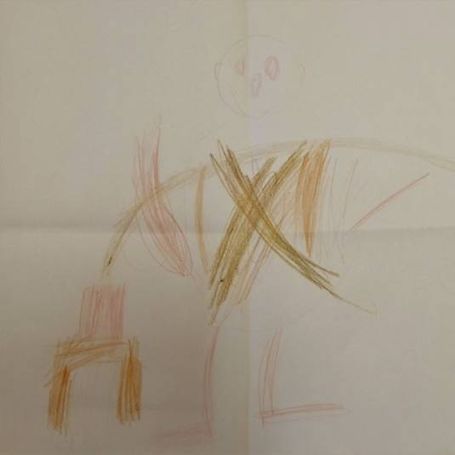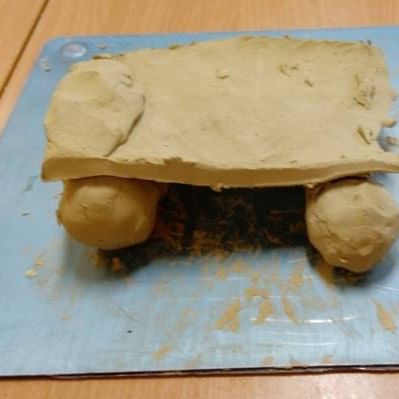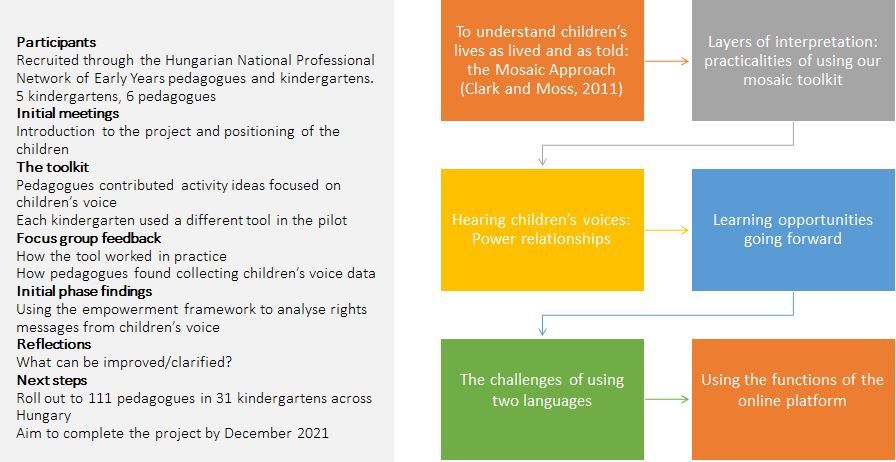


Are you listening to me? Understanding children's rights through pedagogic practice in Hungary
Hungarian pedagogues agree that children should be listened to; have their rights recognised and their voices heard.
The UNCRC recommends that children’s rights should be part of early childhood education, but this is not typical in Hungarian kindergartens and there is little pedagogical material to support the education of children about their rights.
This small pilot study focuses on 5 kindergartens each typically accommodating over 150 children between the ages of 3-6 years old across Hungary. Six pedagogues worked with multi-age groups (4 kindergartens) and same-age groups (2 kindergartens).
The research adopted participatory methods to gather children’s views recognising them as valuable collaborators. Children provided insight into their own lives through play based creative activities that focused on eliciting children’s thoughts and feelings.
Pedagogues collected video data using a ‘toolkit’ of children’s play activities during a 6-week period of the COVID-19 pandemic. Pedagogues reflected on children’s play through a series of online focus groups with emphasis on how children expressed their views and preferences through play.
Participants were encouraged to examine the power relationships between children and adults and analyse their role in knowledge production rather than knowledge extraction. Six themes emerged through thematic analysis, mapped to the key areas of children’s rights: participation, survival, development and protection.
The findings highlight the juxtaposition between children’s life-as-experienced and life-as-told by adults; the skill of pedagogues to hear and sensitively interpret children’s voices based on their play and the challenge to slow down and reflect on practice.
The key messages from the pilot study included:
- Avoid asking children direct questions – let the activity do the work and listen to what children are saying
- Set up environments to be stimulating as children’s voices will then come as a natural development
- Involve parents as they are interested and can add contextual understanding and reasoning
- When choosing a tool to elicit children’s views, think about the group as well as individual children
- Adjust the tool to own circumstances and conditions and use them over an extended period of time
- Slow down and wait for the right time to ask children what they think


